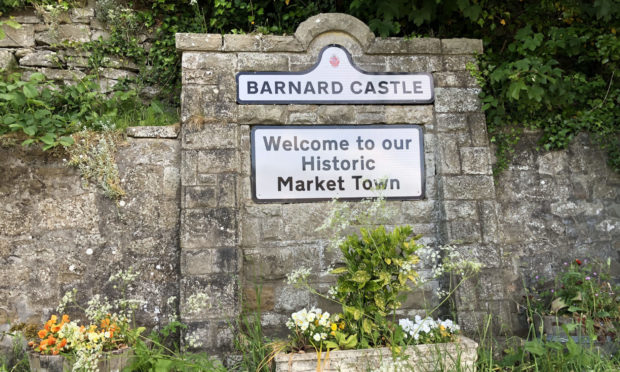Sometimes in our current circumstances, it feels as though we are living shrivelled lives in a shrinking world, that we have become ever smaller until we are like miniature Borrowers, living off the crumbs of our old existence.
Our loved ones are shadows rather than real presences, our social lives are conducted through screens, the world beyond our doorstep still exists only in the way boarded-up shops still exist – physically there, but closed.
Interesting, then, that as our private lives have diminished, becoming a microcosm of our old ones, our public life has become increasingly exaggerated. Our connections to each other and the wider world have been emphasised, not least by the fact that what starts in one place ends up everywhere.
What affects one of us sooner or later affects all of us. One single story now dominates the whole world’s headlines, yet within that lies the same gamut of values that we have always fixated on – power, truth, accountability, honesty, loyalty, betrayal, integrity.
In recent weeks, we have, castrated little Borrowers that we are, been screaming up in the faces of the powerful rulers, demanding answers. Comparatively speaking, perhaps it is not so important whether Boris Johnson’s adviser Dominic Cummings broke lockdown rules.
What is important is the fact that he thinks he is entitled to. What is important is that even in the parallel universe of our Covid society, in which all vestiges of power have supposedly become equalised because the lives of both prince and pauper are held hostage to the great leveller of potential extinction, we still manage to have an elite. You can’t, I can.
But actually, no, not even that is the heart of it. Perhaps what is most important is that we are taken for fools and that what props up the elite is secrecy – we glimpse truth only inadvertently.
Who dobbed on Cummings? The man who spotted him in Barnard Castle? As the unelected Cummings sat in the garden of Number 10 – the pinnacle of political power – holding forth to the press about why he wasn’t sorry, we might have thought he was being forced to account for himself.
He so nearly didn’t have to. Good for the whistleblower. It wasn’t disloyalty – it was truth. Cummings was not exposed for a foible but for something much deeper – his sense of entitlement.
It is in that hypocrisy that the painful centre of this wound lies. There is almost, an observer might think, disproportionate anger towards Cummings. But actually, it is not disproportionate.
People who are subject to rules sometimes bend them. Break them even. But the anger here is that it is the law enforcer breaking rules. The one who would fine everyone else. Worse, it feels as if our sacrifices – not seeing family, not attending funerals, not being with sick and dying loved ones – have made fools of us. We were stupid. Gullible. We believed what we did was important.
The law enforcer is now giving us excuses that sound as believable as a 10-year-old’s homework excuses. My mum put it in the washing machine. The dog ate it. Cummings talks as if the nation’s IQ is smaller than their shoe size. I may have believed in Santa until I was 20, but really…
He drove 30 miles to test his eyesight? In the wrong direction from the one he wanted to travel in? To a market town? Stopping off at a bluebell wood? We might have forgiven Dominic Cummings his stupidity. But we won’t forgive him for assuming ours.
Those in the political class who conjure up slogans and public messages make them simple. They often have the feel of an Orwellian “four legs good, two legs bad” chant.
The assumption is that we are too stupid for anything else, but they are capable of sophisticated judgments. The slogans, then, are just to keep the little Borrowers in the basement. You didn’t think they were for the big folk upstairs, did you? Did you?
Thank God for the civil servant, who cut through distorted ideas of “loyalty” to write on social media: “Arrogant and offensive. Can you imagine working with these truth twisters?” (And thank God for JK Rowling offering to pay their salary for a year.)
There will, of course, be an investigation to out the culprit. That’s how our elite works.
Cast free speech as disloyalty and you can sack ’em.
But one person’s disloyalty is another’s integrity and I applaud the civil servant, not just because I agree with the sentiment, but because they are facing down power with truth.
Right now, that is vitally important – finding truth and integrity in the midst of manipulation.
Who’d have thought I’d applaud a Tory but hats off to Scottish MP Douglas Ross, who resigned his position because Cummings wouldn’t.
Yes, the ongoing Covid story has had it all – everything that is familiar in our world for good reason and bad.
Maybe its biggest contribution will be that all us little Borrowers in our basements will finally wake up to just who is living upstairs.











